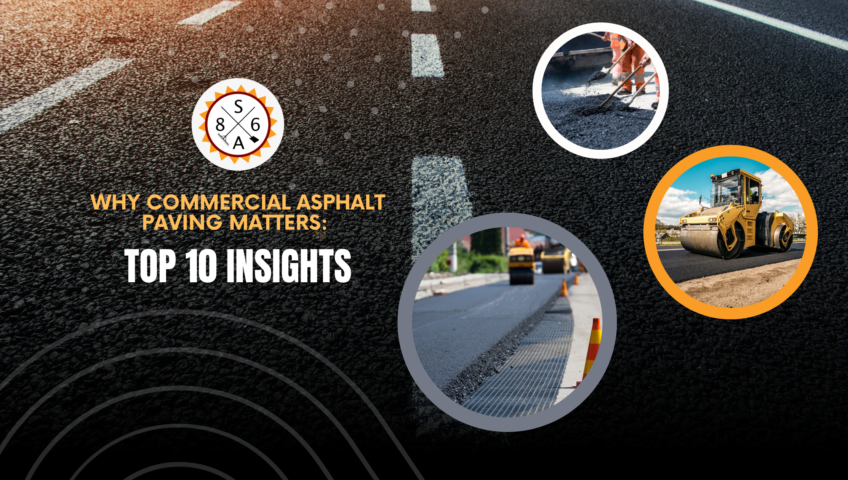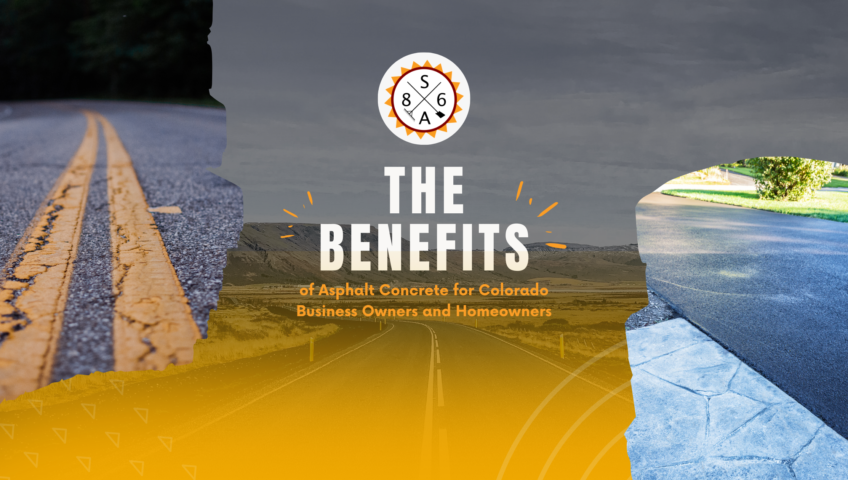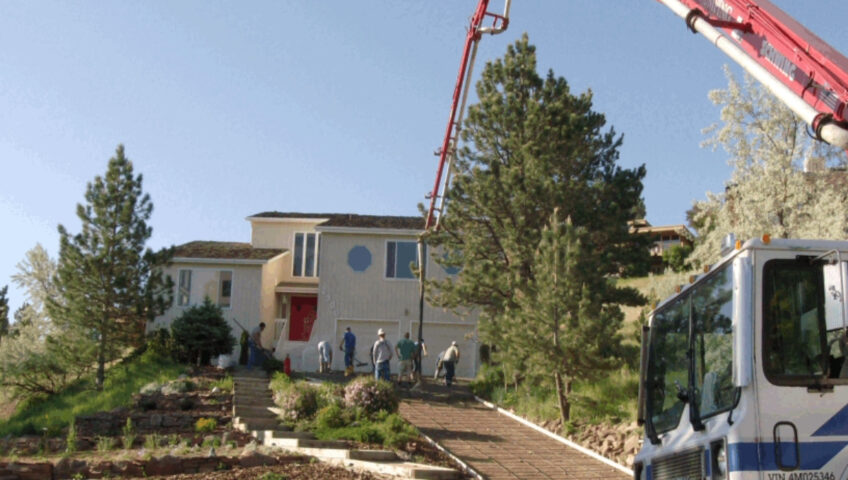
Why Commercial Asphalt Paving Matters: Top 10 Insights
Commercial paving is a crucial aspect of property management for both businesses and homeowners. The quality of your pavement affects not only the aesthetics of your property but also its safety, functionality, and value. Whether you are a business owner looking to enhance the appeal of your commercial property or a homeowner aiming to improve your driveway, understanding the importance of commercial paving is essential. This article will delve into why commercial paving is important, highlighting the benefits it brings to both businesses and residential properties.
1. Enhancing Curb Appeal
First impressions matter, and the exterior of your property is the first thing visitors see. Well-maintained asphalt paving can significantly enhance the curb appeal of both commercial and residential properties. For businesses, a neat and attractive parking lot can create a positive impression on customers, clients, and partners. It reflects a sense of professionalism and attention to detail. For homeowners, a well-paved driveway boosts the overall appearance of the home, making it more inviting and aesthetically pleasing.
2. Ensuring Safety
Safety is a paramount concern for any property owner. Poorly maintained pavements with cracks, potholes, and uneven surfaces can pose serious safety hazards. These issues can lead to accidents, resulting in injuries and potential legal liabilities. Commercial paving ensures that surfaces are smooth, even, and free from dangerous imperfections. Asphalt paving, in particular, provides a durable and reliable surface that reduces the risk of accidents. By hiring professional asphalt contractors, you can ensure that your pavements meet safety standards and protect everyone who uses them.
3. Improving Functionality
Functionality is another critical aspect of commercial paving. For businesses, a well-designed and properly maintained parking lot can enhance traffic flow, making it easier for customers and employees to navigate. Clearly marked parking spaces, directional arrows, and smooth surfaces contribute to a better overall experience. For homeowners, a well-paved driveway offers convenience and ease of access, especially during adverse weather conditions. Asphalt paving provides a smooth and durable surface that can withstand heavy usage, ensuring that your property remains functional and accessible.
4. Increasing Property Value
Investing in commercial paving can have a significant impact on the value of your property. A well-maintained and aesthetically pleasing pavement can increase the overall value of your commercial or residential property. Potential buyers and investors are more likely to be attracted to properties with well-paved driveways and parking lots, as they indicate good maintenance and care. Asphalt paving, known for its durability and longevity, is a wise investment that can yield high returns by boosting property value.
5. Cost-Effectiveness
One of the major benefits of asphalt paving is its cost-effectiveness. Compared to other paving materials, asphalt is relatively affordable and offers excellent value for money. The initial cost of asphalt paving is often lower than alternatives such as concrete, and its maintenance requirements are also minimal. Asphalt contractors can perform routine maintenance, such as sealcoating and crack filling, to extend the lifespan of your pavement and prevent costly repairs. This makes asphalt paving a cost-effective solution for both businesses and homeowners.
6. Environmental Benefits
In today’s world, environmental sustainability is a growing concern. Asphalt paving offers several environmental benefits that make it an attractive choice for property owners. Asphalt is a recyclable material, meaning it can be reused multiple times, reducing the demand for new raw materials. Additionally, asphalt pavements are designed to be porous, allowing water to permeate through the surface and reducing runoff. This helps in managing stormwater and preventing flooding. By choosing asphalt paving, you are contributing to environmental conservation and promoting sustainable practices.
7. Professional Expertise
To achieve the best results in commercial paving, it is essential to hire professional asphalt contractors. These experts have the knowledge, skills, and experience to handle various paving projects, ensuring high-quality workmanship. Professional contractors use advanced equipment and techniques to deliver durable and long-lasting pavements. They also provide valuable advice on maintenance and care, helping you preserve the quality of your pavement for years to come. Whether it’s a large commercial parking lot or a residential driveway, hiring professional asphalt contractors guarantees superior results.
8. Durability and Longevity
Durability is a key factor in the importance of commercial paving. Asphalt paving is known for its resilience and ability to withstand heavy loads and harsh weather conditions. It can endure the daily wear and tear from vehicles and foot traffic without deteriorating quickly. This durability translates to a longer lifespan for your pavement, reducing the need for frequent repairs and replacements. For businesses, this means minimal disruption and lower maintenance costs. For homeowners, it ensures that your driveway remains in excellent condition for many years.
9. Enhancing Accessibility
Accessibility is crucial for businesses, particularly those that cater to the public. Well-paved surfaces ensure that your property is accessible to all, including people with disabilities. Compliance with accessibility standards, such as the Americans with Disabilities Act (ADA), is essential for businesses. Professional asphalt contractors can design and install pavements that meet these standards, providing ramps, smooth transitions, and designated parking spaces. This enhances the inclusivity of your property and ensures that everyone can access your facilities comfortably and safely.
10. Reducing Maintenance Efforts
Regular maintenance is essential to keep pavements in optimal condition. However, asphalt paving requires relatively low maintenance compared to other materials. Simple routine tasks such as sweeping, sealcoating, and crack filling can keep your pavement looking new and extend its lifespan. Professional asphalt contractors offer maintenance services that are efficient and cost-effective. By investing in regular maintenance, you can prevent major issues and avoid costly repairs, saving time and money in the long run.
By hiring professional asphalt contractors, you can achieve high-quality pavements that stand the test of time. Whether you are looking to improve your business premises or enhance your home’s driveway, commercial paving is a smart choice that delivers lasting value.
Commercial paving is a crucial aspect of property management for both businesses and homeowners. The quality of your pavement affects not only the aesthetics of your property but also its safety, functionality, and value. Whether you are a business owner looking to enhance the appeal of your commercial property or a homeowner aiming to improve your driveway, understanding the importance of commercial paving is essential. This article will delve into why commercial paving is important, highlighting the benefits it brings to both businesses and residential properties.
1. Enhancing Curb Appeal
First impressions matter, and the exterior of your property is the first thing visitors see. Well-maintained asphalt paving can significantly enhance the curb appeal of both commercial and residential properties. For businesses, a neat and attractive parking lot can create a positive impression on customers, clients, and partners. It reflects a sense of professionalism and attention to detail. For homeowners, a well-paved driveway boosts the overall appearance of the home, making it more inviting and aesthetically pleasing.
2. Ensuring Safety
Safety is a paramount concern for any property owner. Poorly maintained pavements with cracks, potholes, and uneven surfaces can pose serious safety hazards. These issues can lead to accidents, resulting in injuries and potential legal liabilities. Commercial paving ensures that surfaces are smooth, even, and free from dangerous imperfections. Asphalt paving, in particular, provides a durable and reliable surface that reduces the risk of accidents. By hiring professional asphalt contractors, you can ensure that your pavements meet safety standards and protect everyone who uses them.
3. Improving Functionality
Functionality is another critical aspect of commercial paving. For businesses, a well-designed and properly maintained parking lot can enhance traffic flow, making it easier for customers and employees to navigate. Clearly marked parking spaces, directional arrows, and smooth surfaces contribute to a better overall experience. For homeowners, a well-paved driveway offers convenience and ease of access, especially during adverse weather conditions. Asphalt paving provides a smooth and durable surface that can withstand heavy usage, ensuring that your property remains functional and accessible.
4. Increasing Property Value
Investing in commercial paving can have a significant impact on the value of your property. A well-maintained and aesthetically pleasing pavement can increase the overall value of your commercial or residential property. Potential buyers and investors are more likely to be attracted to properties with well-paved driveways and parking lots, as they indicate good maintenance and care. Asphalt paving, known for its durability and longevity, is a wise investment that can yield high returns by boosting property value.
5. Cost-Effectiveness
One of the major benefits of asphalt paving is its cost-effectiveness. Compared to other paving materials, asphalt is relatively affordable and offers excellent value for money. The initial cost of asphalt paving is often lower than alternatives such as concrete, and its maintenance requirements are also minimal. Asphalt contractors can perform routine maintenance, such as sealcoating and crack filling, to extend the lifespan of your pavement and prevent costly repairs. This makes asphalt paving a cost-effective solution for both businesses and homeowners.
6. Environmental Benefits
In today’s world, environmental sustainability is a growing concern. Asphalt paving offers several environmental benefits that make it an attractive choice for property owners. Asphalt is a recyclable material, meaning it can be reused multiple times, reducing the demand for new raw materials. Additionally, asphalt pavements are designed to be porous, allowing water to permeate through the surface and reducing runoff. This helps in managing stormwater and preventing flooding. By choosing asphalt paving, you are contributing to environmental conservation and promoting sustainable practices.
7. Professional Expertise
To achieve the best results in commercial paving, it is essential to hire professional asphalt contractors. These experts have the knowledge, skills, and experience to handle various paving projects, ensuring high-quality workmanship. Professional contractors use advanced equipment and techniques to deliver durable and long-lasting pavements. They also provide valuable advice on maintenance and care, helping you preserve the quality of your pavement for years to come. Whether it’s a large commercial parking lot or a residential driveway, hiring professional asphalt contractors guarantees superior results.
8. Durability and Longevity
Durability is a key factor in the importance of commercial paving. Asphalt paving is known for its resilience and ability to withstand heavy loads and harsh weather conditions. It can endure the daily wear and tear from vehicles and foot traffic without deteriorating quickly. This durability translates to a longer lifespan for your pavement, reducing the need for frequent repairs and replacements. For businesses, this means minimal disruption and lower maintenance costs. For homeowners, it ensures that your driveway remains in excellent condition for many years.
9. Enhancing Accessibility
Accessibility is crucial for businesses, particularly those that cater to the public. Well-paved surfaces ensure that your property is accessible to all, including people with disabilities. Compliance with accessibility standards, such as the Americans with Disabilities Act (ADA), is essential for businesses. Professional asphalt contractors can design and install pavements that meet these standards, providing ramps, smooth transitions, and designated parking spaces. This enhances the inclusivity of your property and ensures that everyone can access your facilities comfortably and safely.
10. Reducing Maintenance Efforts
Regular maintenance is essential to keep pavements in optimal condition. However, asphalt paving requires relatively low maintenance compared to other materials. Simple routine tasks such as sweeping, sealcoating, and crack filling can keep your pavement looking new and extend its lifespan. Professional asphalt contractors offer maintenance services that are efficient and cost-effective. By investing in regular maintenance, you can prevent major issues and avoid costly repairs, saving time and money in the long run.


